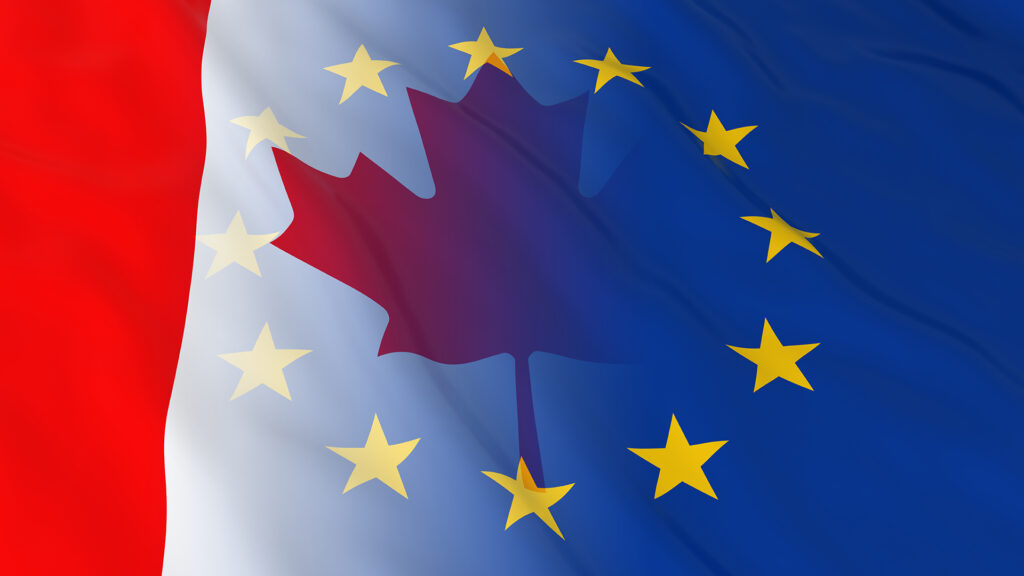European Commission spokesman Thomas Leisure explains why Canada’s participation in the Horizon Europe programme is a significant step forward in its longstanding relationship with the EU and the country.
In July 2024, Canada officially joined Horizon Europe, the European Union’s (EU) major funding programme for research and innovation.
The agreement, jointly signed by Iliana Ivanova, the committee member for innovation, research, culture, education and youth, and François Philippe Champagne, Minister of Innovation, Science, Industry and Industry, François Philippe Champagne, provides Canadian researchers and organizations with the opportunity to participate in the Horizon Europe program on equal terms with their EU counterparts. This is another milestone in Canada’s long-standing strategic partnership with the EU, dating back to the late 1950s.
Canada has participated in the Horizon Europe program under Pillar II of “Global Challenges and European Industrial Competitiveness.” This supports research related to social challenges and strengthens technology and industry capabilities through six clusters. It sets missions with ambitious goals, strengthens livelihoods and protects the planet to target some of the world’s biggest issues and some of the Sustainable Development Goals (SDGs). It also includes activities pursued by the Joint Research Centres supporting EU and national policymakers with independent scientific evidence and technical support.
The Innovation Platform spoke to European Commission spokesman Thomas Leisure to find out why the agreement is a significant step forward for global research and development.

Why is the European partnership between Canada and Horizon so important?
Horizon Europe is the most open and by far the largest research and innovation programme worldwide. The association between non-EU countries and programmes is one of the key vehicles to ensure this openness.
Together with the Canadian Association, we are strengthening our relationship with our EU and our trusted partners with a solid scientific foundation and a robust track record in research and innovation. The association will facilitate collaboration between Canadian and EU entities and fund joint projects.
What does this partnership mean for the EU?
The EU and Canada are linked by a vibrant, comprehensive strategic partnership based on a common vision of a rules-based international order and a common commitment to democratic values, peace and security, and free and fair trade. This long-standing strong friendship is shaped by extensive historical, cultural, political and economic relationships.
The Association to Horizon Europe in Canada brings us even closer together and increases the potential to provide the research community with solutions to global challenges.
Additionally, there was a Canada-EU summit on November 24, 2023, with European Commission President Ursula von Leyen and Canadian Prime Minister Justin Trudeau making the conclusions of negotiations with Canadian Regional Europe Pillar II.
What are the important issues you hope this partnership will help you deal with?
Thanks to its association with Canada’s Horizon Europe, Canadian entities can join and lead research consortiums with some of the world’s best research institutes to tackle global challenges such as climate change together.
The EU already has good cooperation with research and innovation (R&I) with Canada in a wide range of areas including health, bioeconomics, ocean and Arctic, transportation, artificial intelligence (AI), quantum, environment, research infrastructure, and researcher mobility. We hope that we can further strengthen this and expand it through the Horizon Europe Association.
Why is collaboration with non-EU countries within Horizon Europe important?
The association of third countries with Horizon Europe offers many advantages as well as the EU R&I community and related countries. For example, it provides access to top-level talent, knowledge, research institutes and infrastructure.
Third countries associations, particularly scientific powers, have made the whole EU research community more likely to develop new partnerships with other centres of excellence, increasing the likelihood that they will access a wide range of research infrastructures and ecosystems, far from the European continent.
Furthermore, an important principle of association contracts is the mutual openness of R&I funding programs. Related countries are encouraged to open national R&I programs that correspond to participation of EU-based research entities comparable to Horizon Europe. The Association Agreement lists national research programs that are open to the participation of EU-based entities. This opens up more opportunities for new research collaboration to EU-based entities.
Finally, when the war returns to the continent of Europe, it is paramount to strengthening alliances with like-minded geopolitical partners, even if they are not in our neighborhood.
This article will also be featured in the 20th edition of Quarterly Publishing.
Source link

